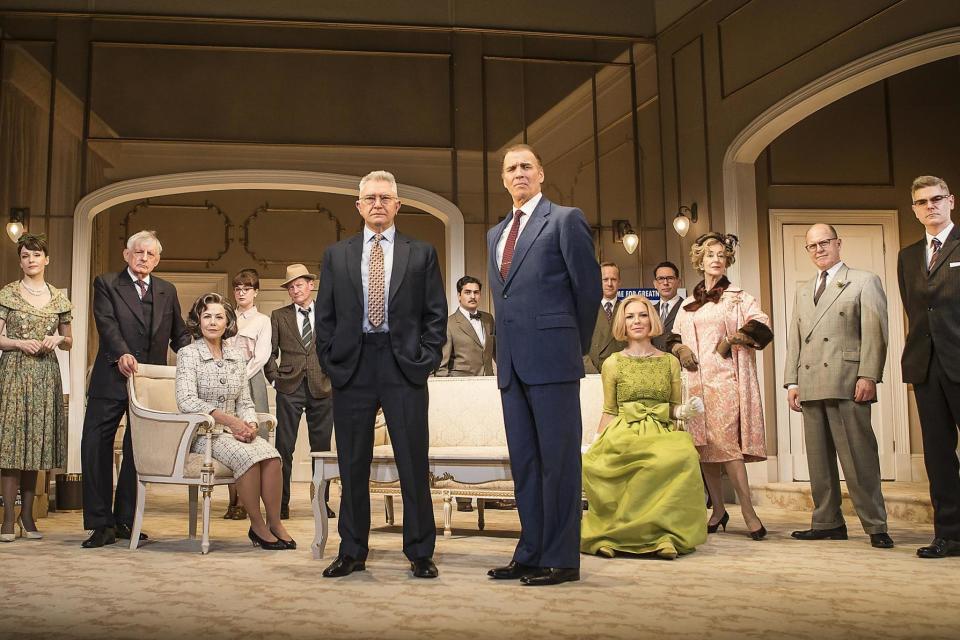The Best Man goes beyond Trump, say Martin Shaw and Jeff Fahey

Gore Vidal’s The Best Man, which made its West End debut last night at the Playhouse, concerns itself with the crack which seems so often to divide elections. In it, two candidates compete to become their (unspecified) party’s presidential candidate of 1960. Both have their flaws, but one prides themself on their intellect and principles, the other on his man-of-the-people, populist schtick.
This other, Joseph Cantwell, is a self-made man, a bluster of confidence who has no problem exploiting his rival’s past – a nervous breakdown – and spinning into a mental health smear campaign. So far, so Trump, and plenty of reviews have mentioned as such. Jeff Fahey, who plays Cantwell, thinks this sell is just skin deep.
“We could be in ancient Rome, honestly. I mean it’s real and that’s happening today, that anti-intellectualism. But I’m not looking at it as Trump at all, I’m looking at it as a blend of all these things; I’m looking at it as the characters Vidal wrote, you know?” Fahey tells the Standard.
Martin Shaw, who plays Cantwell’s rival William Russell, says: “You have this extraordinary event in America which as left everybody amazed, that a reality TV star has become the leader of the free world and whatever you think about that, it has made people wonder.
“Even though, quite rightly, Jeff is not playing it as Trump and even though, quite rightly, I’m not playing it as Obama, there are inevitable parallels but the essential message is: ‘who is going to be best for the job?’ That is not such an easy question to answer. You know, for the kind of people who enjoy honesty and integrity and idealism, one man is going to great and then you’re going to get the other people who say, well, ‘I think we should be led by people like us’.”
Alongside Shaw and Fahey are Honeysuckle Weeks, who plays Cantwell’s wife, and Maureen Lipman, who plays Mrs Gamadge. Gamadge, in Shaw’s words, “is in charge of the women’s vote.”
“Women are very important in this play but in a different way to the way they’re important nowadays,” said Shaw, “There’s sort of an amused tolerance of Mrs Gamadge’s presence and of her power.
“With Cantwell’s wife, I don’t think that it’s too much of a stretch to say she would be perceived as a trophy wife in the traditional, patronising sense, whereas the wife that I have is a trophy in too – but because of her intelligence and her wittiness is a match for him. That’s the difference between then and now, because in 1960 that’s where women, even the powerful ones like Ms Gamadge and even the clever ones, like Russell’s wife, that was their position.
“There was a time only a year ago when it seemed three of the greatest nations on earth, three of the most powerful ones, were going to be ruled by women. That would have been a very different world and one that could hardly be imagined in 1960.”
Outside of the increased prominence of women in politics, much of the play is likely to seem depressingly familiar – “nothing’s changed, it’s still as rotten now as it was then”, according to Shaw – but Fahey remains more sanguine. “I’m going to say many thing have changed, many things will still change, it’s all relevant to our time.
“We don’t have the final answer.”
The Best Man runs at the Playhouse Theatre, WC2N 5DE, until May 12 (0844 871 7631, Buy tickets here)

 Yahoo News
Yahoo News 